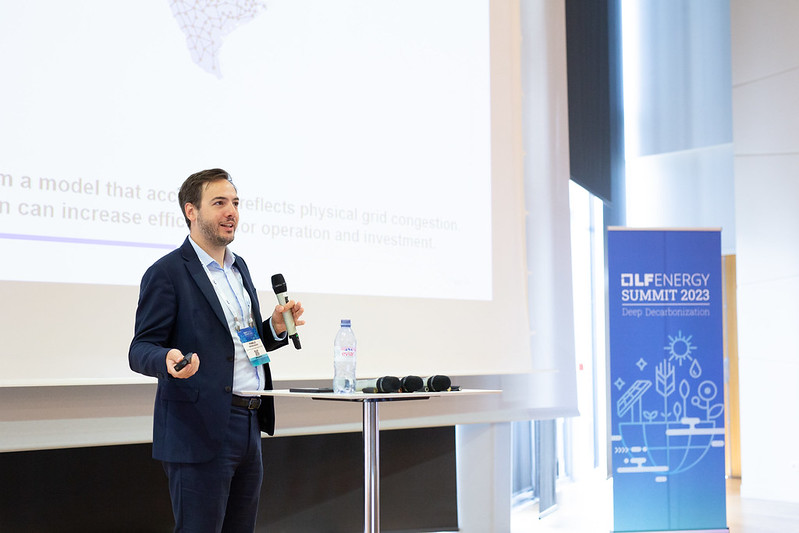LF Energy Summit Recap: Fast-Tracking Innovation in the Energy Transition
LF Energy Summit 2023 featured a keynote session by Pablo Hevia-Koch, Acting Head of Renewables Integration and Secure Electricity at the International Energy Agency (IEA). In his presentation titled “Electricity Markets: Fast-Tracking Innovation in Energy Transition” (video follows below), Hevia-Koch shed light on the critical role of electricity markets in driving innovation during the global energy transition. Here are the key takeaways from his thought-provoking session.
Decarbonization and the Power Sector
Hevia-Koch emphasized that decarbonizing the power sector is crucial in achieving global climate goals. Electricity, being the first sector to decarbonize, offers more opportunities for carbon removal and can play a vital role in decarbonizing other sectors. By leveraging advancements in technology and promoting electrification, we can make significant progress towards achieving net-zero emissions by 2050.
Clean Energy Expansion in the Next Decade
The upcoming decade is expected to witness a massive expansion of clean energy sources. Investments in photovoltaic (PV) and wind technologies are projected to increase fourfold compared to 2020. Furthermore, there will be a substantial rise in electric vehicle adoption, leading to increased energy intensity per GDP. These advancements will drive the need for innovative solutions and market designs to support the evolving energy landscape.
Transition from Centralized to Decentralized Systems
The power sector is undergoing a profound transformation, shifting from a centralized, dispatchable system to a decentralized model. This new paradigm involves variable generation, multiple actors, and distributed services. To accommodate this change, market design and policy frameworks need to be adaptable, facilitating the integration of new technologies and services. Collaboration between stakeholders is crucial for optimizing system efficiency and harnessing the full potential of emerging technologies.
The Role of Markets in Innovation
Hevia-Koch emphasized that markets play a pivotal role in scaling up new technologies and driving innovation. Well-designed electricity markets provide incentives and opportunities for the deployment of emerging technologies, ensuring their value is recognized. By utilizing optimization algorithms and considering the physical realities of the system, markets can optimize resources, manage grid stability, and enable the efficient integration of renewable energy sources and storage technologies.
Incentivizing Innovation and Community Engagement
To accelerate innovation, Hevia-Koch stressed the importance of incentivizing and empowering all actors in the energy ecosystem. Encouraging community involvement and fostering open energy communities allows for greater participation in buying, selling, and providing energy services. Additionally, embracing an iterative process of market design and policy development allows for continuous improvement and adaptation as the energy transition progresses.
Hevia-Koch’s keynote session shed light on the critical role of electricity markets in fast-tracking innovation during the energy transition. As the power sector decarbonizes and integrates cleaner energy sources, market design and policy frameworks must evolve to support emerging technologies and optimize system efficiency. By fostering collaboration, incentivizing innovation, and embracing iterative processes, we can create a sustainable and resilient energy future.
